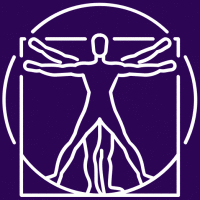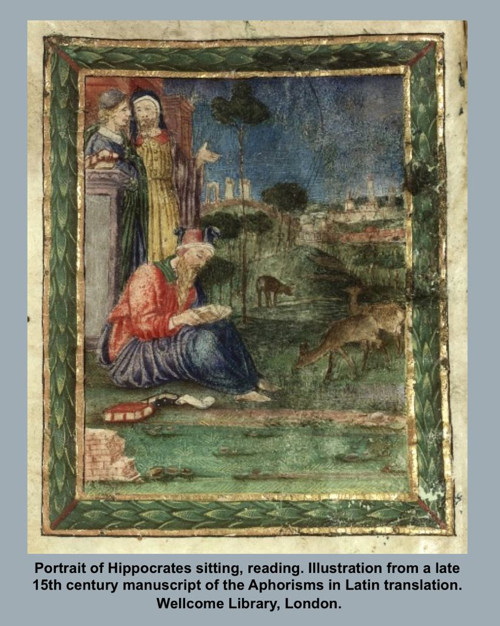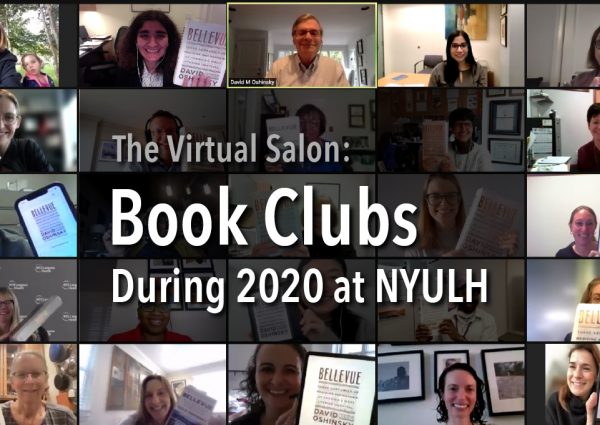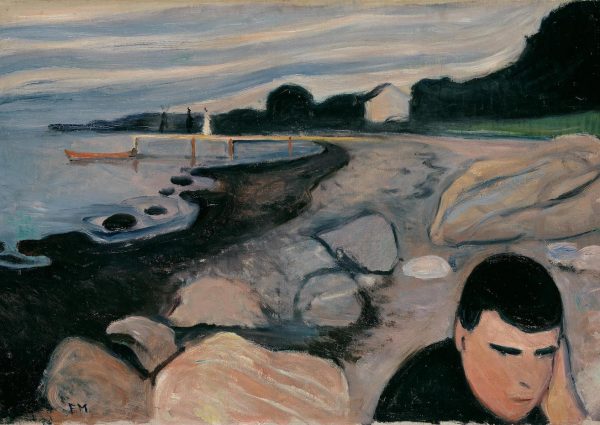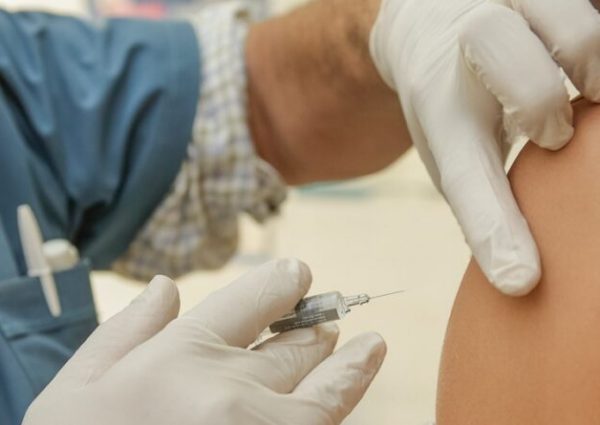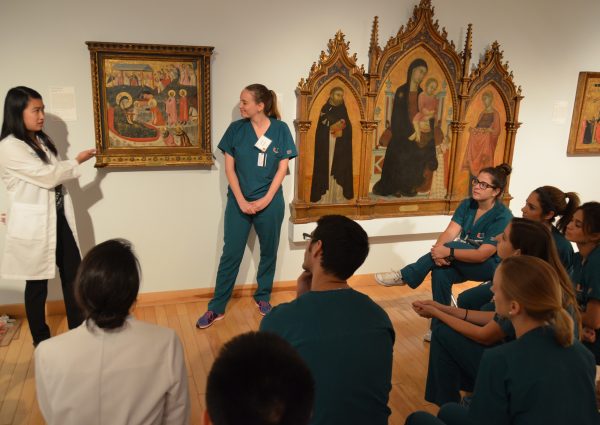Commentary by Allan Peterkin, MD., Associate Professor of Psychiatry and Family Medicine, University of Toronto; Head of The Program in Narrative and Healthcare Humanities; founding editor, ARS MEDICA: A Journal of Medicine, The Arts and Humanities
Most medical schools in North America have Bioethics divisions but not all have humanities programs. In the current climate of funding cutbacks and loss of investments for establishing new university Chairs, many academics assume that they will never have the resources to develop a new humanities program for their students in healthcare. In this essay educators are encouraged to move forward all the same. By growing a grass-roots program and building a vibrant humanities community on their campus, they can have impact on the culture of learning at their institution and become a vital resource for their university. Administrators may then be persuaded to pay heed to the results and to offer administrative, institutional and financial support. Here are fifteen steps that were employed at the University of Toronto medical school and led to the granting of official status to the author’s program and to pledges of funding from multiple sources.
1) Start with a hospital-based initiative and make sure colleagues and administrators know about your work. Hold monthly, inter-disciplinary lunchtime meetings with engaging speakers tackling “out of the box” subject matter. We’ve had sessions given by a family doctor studying to be a professional buffo clown, a toxicologist discussing poisons in opera, a nurse-dancer addressing the need for movement for children in hospital and how that might impact hospital design and a social worker offering `on the spot training` for mindfulness in the hospital setting. Cast a broad net. Invite students and faculty from both health and arts disciplines. Advertise events in your university newspaper and hospital bulletin. Serve snacks (if you can!) Ask participants to fill out evaluations of the sessions . Keep these in order to demonstrate impact and for fine-tune your programming.
2) Choose a name for your program and be inclusive. We called our initiative “The Program in Narrative and Healthcare Humanities” in order to have appeal across disciplines. Some non-physician colleagues and other clinicians may object to (or feel excluded by) a “medical” humanities nomenclature.
3) Consider starting a newsletter, blog or print/online journal. We started “ARS Medica: A Journal of Medicine, The Arts and Humanities” 5 years ago with a small start-up fund from our very supportive Department Head and established a voluntary editorial board. The journal was/is a labor of love and has become the voice of our emerging discipline. Government arts grants have followed and the journal hit the radar of the university administration when we introduced a study guide with questions for reflection and study. The journal is now offered free of charge to all first year medical students in an innovative pilot research initiative.
4) Form partnerships with non-medical colleagues. Contact the heads of the English, History, Philosophy and Film Studies Departments and invite them and their colleagues/students to your monthly meetings. Find out who has a particular interest in health/disability/illness/narrative studies and ask them to present or to be a discussant.
5) Form partnerships with other healthcare humanities organizations nationally and internationally to obtain further guidance in establishing your local program. Join list-serves. (For example both the NYU Literature, Arts, and Medicine Database and the Literature and Medicine affinity group of the American Society of Bioethics and Humanities have been extremely helpful in assisting us to choose literary content for teaching students and for canvassing what’s being done in the field.)
6) Form writing and research alliances with local, national and international colleagues. Publications and presentations are hard to ignore by funders and Deans.
7) Infuse your own department/faculty with humanities projects and seize opportunities to introduce arts-based content into existing curricula and lecture content. Ask to give a Grand Rounds on an art-based theme. Organize a student art exhibit in the lobby of your hospital or a yearly humanities essay contest. Introduce a poem or short text into morning rounds and link it to the subject matter or diagnosis at hand. Submit a workshop to a faculty development/ CME conference. (We offered three narrative-based medicine workshops to the Department of Family Medicine which were highly rated and subsequently increased the demand for training on reflection which incorporated writing and reading tasks). Make sure your offerings appear on your Departmental and Hospital websites.
8.) Form a list-serve and build a virtual humanities community for students and faculty. You’ll discover that many of your colleagues (including those in non-clinical fields like research) are using arts-based teaching innovations but believe that they are working in complete isolation. They will be delighted to find like-minded educators and scholars at their own university and will also support future, more formal initiatives and funding requests. Build a website outlining the history of your program, listing affiliated faculty and summarizing presentations, initiatives and publications. Provide links to other healthcare humanities websites and organizations and ask to be listed on their websites as well. Post narratives and educational resources (like lists of films/texts useful in teaching). Become a “Go To” resource for colleagues in curriculum design and interprofessional learning.
9) As you build links with colleagues, prepare a list of possible electives which can be offered to students and residents. We have offered electives in guided reading on specific topics, creative writing and editing (working with Ars Medica editors) and have facilitated links with non-medical faculties. Make sure these electives meet the standards of your school and ensure that they are included on your website and in the syllabi of offerings for students and residents. Keep evaluations as evidence of your impact.
10) Hold evening events in the homes of your humanities faculty several times per year. A movie night for students and residents works well, as does the showing of episodes of specific TV series such as House or Nurse Jackie. Allow trainees to suggest content or to be a discussant. Such meetings build morale, foster community and help to advertise your other initiatives. Attendees may then volunteer to help you with specific tasks related to your program-building (publicity, research, writing letters of support etc.)
11) Organize an annual or bi-annual conference on a health humanities- based theme and hold it on campus. Last year we paired up with colleagues from the Department of English and offered a multi-disciplinary, international colloquium called Narrative Matters. One of our speakers was Dr Rita Charon, founder of the Narrative Medicine Program at Columbia University. Our Deputy Dean of the medical school was more than happy to introduce Dr Charon, but also took notice of the breadth of our initiative.
12) Offer to consult to your faculty on developing the potential links between the humanities and faculty wellbeing, professionalism, reflective capacity and interprofessionalism. Prepare/post resources of readings, films, writing exercises and websites which may be useful in teaching, personal learning or research. By offering our services, we were able to create 2 new courses on reflection and writing and to produce a humanities reader for first year medical students. We built the case that humanities-based initiatives needn’t “steal” or compete with precious lecture time, but can be introduced organically at all levels of training from the pre-clinical years to Continuing Medical Education initiatives.
13) Hone your qualitative research skills and link with local, interested consultants. The impact of most humanities-based initiatives cannot be captured by standard bio-medical research protocols. Nonetheless your Dean will likely request proof for the relevance of your work, its impact on learning and for publications in peer-reviewed journals.
14) Act like an official program until you become one. Form an official working group/program development committee. Keep minutes of your meetings. Prepare an annual report and then request to share it with/present it to your hospital Chief, Departmental Chair, Dean and other educational Deans at your faculty.
15) Choose your moment to request more official status (ie to be identified as a University program/resource rather than a local, hospital or specialty-based one) Be aware of trends in curriculum development within your Faculty (ie the introduction of a new portfolio for teaching, increasing demand for narrative-based interprofessional seminars.) as these may offer opportunities for enhancing the profile of your work. List affiliations/partnerships with other departments at your school to show that you have the support of key players on campus. Prepare a three year budget. Your start-up year should be at least 20% more than years two and three. Prepare a dream list for future development. (We hope to have a writer in residence and a fully endowed Chair at our university within 5 years). Explore all funding options including existing competitions for innovation in course design or inter-professional teaching. Your Dean may be more willing to match funds from your department, hospital or outside sources, rather than to fund your program in its entirety.
Readers of this blog are invited to share practical strategies of what has been successful (or less so) in their own settings. Let the dialogue begin!
